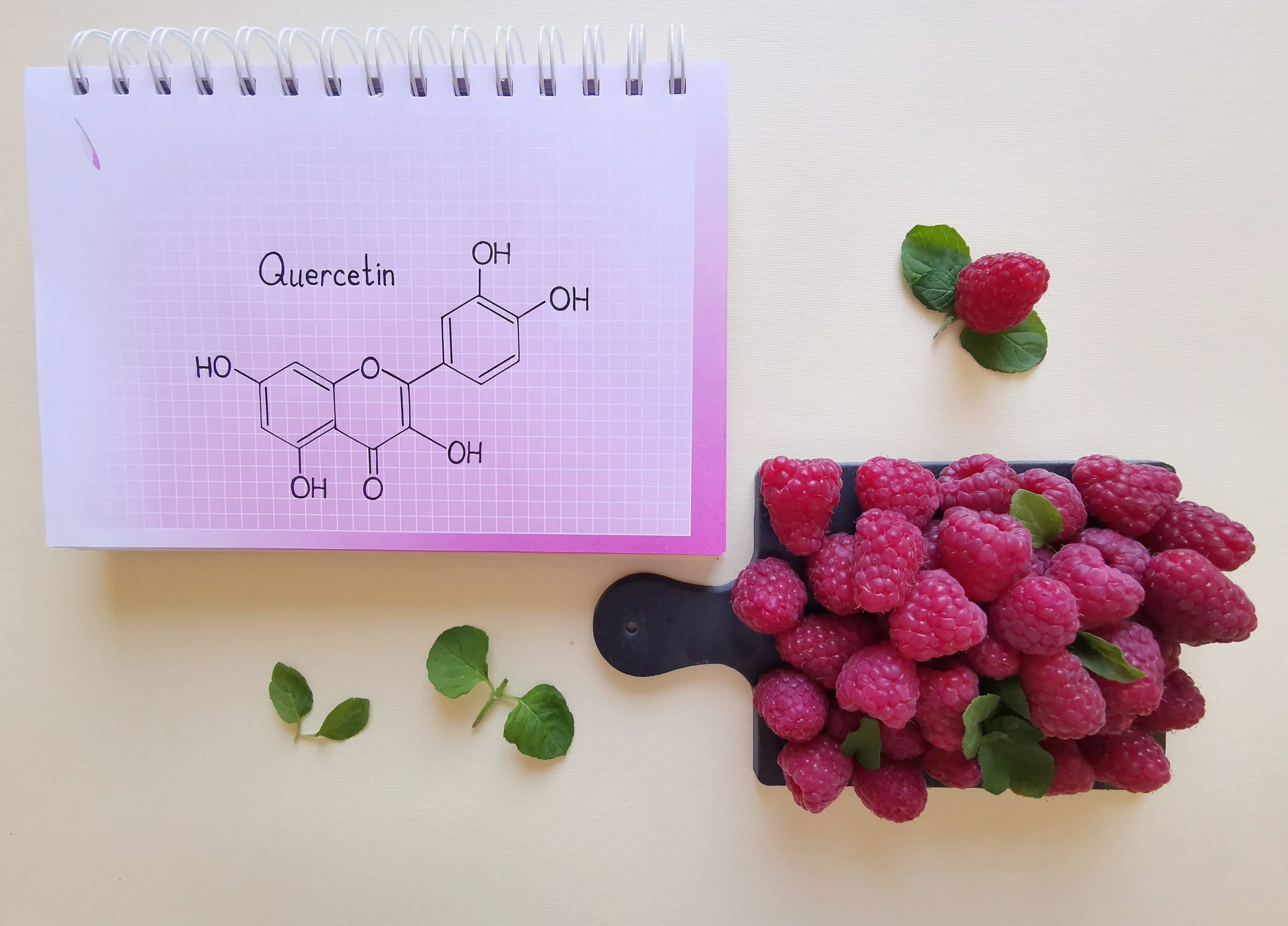Seasonal allergies are a very common condition, and combating the misery by minimizing symptoms and reducing the risk of future occurrences can include everything from taking risky steroids to natural alternatives – enter Quercetin!
Quercetin is credited with being one of the most extensively researched plant compounds found in a host of fruits and vegetables including apples, kale, blueberries, onions, capers, and other powerhouse foods. Due to this flavonoid’s multiple health benefits, it is marketed as a health supplement around the world.
Researchers from world-renowned Mount Sinai agree that one of quercetin’s impressive benefits is its ability to support respiratory health by acting as an antihistamine. Quercetin’s anti-allergic functions give it the ability to stop the release of histamine. Histamine is the chemical that causes seasonal allergic reactions that contribute to one’s runny nose, watery eyes, sneezing, and congestion due to seasonal pollen, airborne pollutants, pet dander, mold, dust mites, and other allergens.
Most cells interact with other cells in the human immune system to generate inflammation which leads to coughing, sneezing, sniffling and the rest of the all-too-familiar seasonal allergy symptoms. To modulate histamine in patients, quercetin is commonly recommended by doctors of Integrative Medicine when patients inquire about remedying their seasonal miseries.
By stabilizing mast cells, quercetin, as mentioned, inhibits the release of histamine and other inflammatory mediators. Boulder Medical Center in Boulder, CO reveals studies that conclude that quercetin works better than an old asthma medication known as Cromolyn, known for its nasty side effects. Unlike Cromolyn, quercetin is well tolerated.
People Desire the Most-Natural Allergy Remedies
The American Academy of Allergy states that upwards of 30%-40% of the American population suffers from allergies – either temporarily or continually. Many standard treatment options for allergies and hay fever contain ingredients such as corticosteroids, known also as steroids. Often prescribed for a wide range of conditions, corticosteroids are a man-made version of hormones that are, normally, produced by the adrenal glands.
The problem lies with corticosteroids that can have long-term health risks which can include increased risk of infections, diabetes, high blood pressure, osteoporosis, and other conditions. For this reason, corticosteroids are only prescribed at the lowest effective dose for the shortest possible time. Consequently, more natural alternatives are being sought which is why quercetin has become so widely embraced, around the world. In addition to probiotics, quercetin has become one of the most-coveted natural remedies for allergy sufferers, everywhere.
Real People, Real Results
Meet Dr. Andrew Weil, M.D. – Director of the Arizona Center for Integrative Medicine at the University of Arizona in Tucson. Dr. Weil has been a practitioner and teacher of Integrative Medicine for more than 30 years. He is the author of a number of books including Natural Health, Natural Medicine: The Complete Guide to Wellness and Self-Care for Optimum Health and 8 Weeks to Optimum Health: A Proven Program for Taking Full Advantage of Your Body’s Natural Healing Power.
Dr. Weil appeared before the US Senate in February of 2009, along with three other prominent physicians, to promote the benefits of Integrative Medicine as part of American healthcare reform. Dr. Weil’s personal mission has been to advance a philosophy of health which, optimally, addresses mind, body, and spirit.
Dr. Weil believes, personally and professionally, in the efficacy of quercetin in addressing seasonal allergies. He, himself, recommends it to his patients. Though Dr. Weil realizes some supportive research data regarding the beneficial aspects of quercetin is not complete, he states: “Many of my patients who have suffered, for years, with seasonal allergies have found welcome relief from quercetin. Some of my patients have, even, prevented episodes by taking quercetin in the weeks preceding pollen season. Try it and see if your symptoms improve!”

